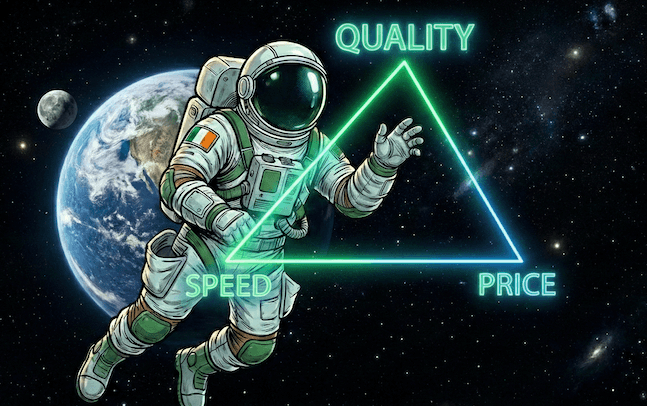Why Is Discovery So Difficult?
Sales discovery is often seen as one of the most challenging parts of the sales process. The difficulties range from the relationships on the buyer's side to the seller’s lack of curiosity.

Sales discovery is considered to be the most challenging part of the sales process for several interconnected reasons. When done poorly, it not only fails to uncover critical buyer needs but can also damage the sales relationship, leading to misaligned expectations, unsuitable solutions, and trust issues that echo throughout the entire customer lifecycle.
A common cause of failed discovery is inadequate training and enablement (for example, to overcome a lack of preparation or ineffective questioning techniques). We will not focus on training here but instead examine why discovery is inherently tricky. The challenges fall broadly into three categories: the built-in complexity of discovery, the salesperson’s deal-making mindset, and the buyer's resistance to sharing info.
1. Built-In Complexity
The complexity of buyer organisations often hampers effective discovery. Buyers may not fully understand or articulate their own needs and desired outcomes. In complex B2B sales, multiple stakeholders with competing interests are typically involved, and they may not be aligned on objectives, budgets, or decision-making. This makes it difficult to uncover a unified vision or a compelling reason for change.
Buyers may not fully understand or articulate their own needs and desired outcomes.
- Incomplete Problem Awareness: Buyers frequently focus on symptoms rather than underlying issues. They may misdiagnose their problems or self-diagnose before engaging with sales, making it harder to define the true challenge collaboratively.
- Stakeholder Dynamics: Multiple stakeholders with differing priorities can slow down alignment. Initial contacts may lack the whole picture, requiring engagement with a variety of roles, from budget holders to technical experts.
- Balancing Depth and Time: Salespeople only have limited time and a finite number of questions to ask. Too many questions risk making the conversation feel like an interrogation, while a discovery process that is too detailed can make prospects impatient as they wait for a product demonstration.
2. Salesperson’s Mindset
Sales professionals often compromise effective discovery because they are focused on hitting KPIs and commission checks rather than solving customer problems. This quota-driven mindset leads to rushed questioning, selective listening, and transactional behaviour. By prioritising short-term targets over genuine understanding, salespeople ironically weaken their own chances of success, as customers who feel understood are more likely to become long-term clients.
Quota-driven mindset leads to rushed questioning, selective listening, and transactional behaviour.
- Poor Listening Habits: Talking too much can hinder reaching a genuine understanding. Many salespeople dominate conversations, even though effective discovery requires listening more than speaking. Silence, when used effectively, is a powerful tool for drawing out deeper insights.
- Lack of Curiosity: Sales teams that focus solely on securing the deal often fail to uncover broader opportunities within the customer's organisation. This mindset creates tunnel vision where representatives ask only questions that lead to their immediate sales goal, missing valuable context and potential upsell or cross-selling opportunities.
3. Buyer Resistance
Buyers might resist discovery due to past negative experiences with unprepared or overly rigid salespeople. This creates a cautious reluctance to share information and a preference for tailored insights over generic pitches. A sales culture focused too heavily on pitching products rather than understanding needs compounds the issue.
Past experiences create reluctance to share information.
- Prospect Engagement: Some prospects are unresponsive or withhold information, making it difficult for salespeople to build clarity or tailor a demo. Silence can frustrate salespeople, but it may simply reflect uncertainty or personality differences.
- Trust-Building Challenges: Early calls can feel awkward. Building rapport requires a collaborative, non-defensive approach to avoid putting buyers on edge. Many expect sales reps to act as trusted advisers, yet few believe their needs are truly understood.
- Buyer Fatigue: Prospects who actively engage in buying may experience discovery fatigue from multiple sales representatives asking the same questions, sometimes even within a single day. This “Groundhog Day” effect can make buyers more guarded and disengaged.




